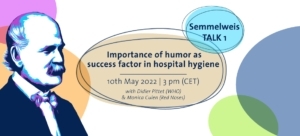To increase our collective understanding of the evolution and spread of antibiotic resistance in human pathogens: This is the overall purpose of EvoTAR (Evolution and Transfer of Antibiotic Resistance), which will organize a International Conference (ICETAR2015) on this item in June (24-26). With Prof. Willem van Scheik (Department of Medical Microbiology, University Utrecht) spoke Carola Timmel.
Mr. van Scheik, what is particular in the work of EvoTAR?
EvoTAR distinguishes itself from other project on antibiotic resistance through its emphasis on acquiring a basic understanding of the evolution and transfer of antibiotic resistance genes and antibiotic resistant bacteria. We study the reservoir of antibiotic resistance genes that is harbored by the gut microbiota (“the gut resistome”) using high-throughput sequencing methods. In addition, we study the genomic relatedness of the antibiotic-resistant bacteria that colonize humans and environmental, animals and food. We also study the characteristics of plasmids that are crucial elements in the transfer of antibiotic resistance genes. Experimental data is used as input for studies that use mathematical modeling to quantify and predict gene flow between different reservoirs. Finally, we have developed novel intervention approaches aimed at reducing selection and spread of antibiotic resistance in EvoTAR.
Can you describe a little bit one of your current projects ?
Yes, for example we are studying the effect of hospital stay and associated antibiotic therapy on the gut resistome of patients. In short, we find that hospital stay and antibiotic therapy has a pervasive effect on the composition of the gut microbiota and on the resistome, leading to the enrichment of antibiotic resistance genes. Our data indicate that most antibiotic resistance genes are found in harmless gut commensals, like Bacteroides and Clostridium. Currently, we are studying whether this particular reservoir of antibiotic resistance genes in gut commensals is associated with mobile elements (like plasmids) and thereby could serve as a source of antibiotic resistance genes for opportunistic pathogens.
More about EvoTAR and the mentioned project (publications):
http://www.evotar.eu
http://jac.oxfordjournals.org/content/69/8/2215.abstract
http://www.ncbi.nlm.nih.gov/pubmed/25918444




